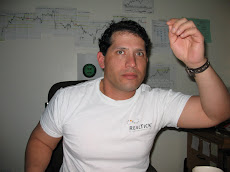Pay Day Moans
America's money-transfer business
Check for cheque-cashers
Jan 11th 2007 | NEW YORK
From The Economist print edition
Those who serve the unbanked find themselves unbanked, too
NO INNER-CITY area in America is complete without a sprinkling of cheque-cashing shops and money-transfer agents. Yet these days so-called money-service businesses (MSBs) are the unacceptable face of high-street finance. Many banks have stopped offering accounts to them, citing regulatory concerns.
Money-service firms play an important role, serving poor urban, often immigrant, customers whose access to banks is limited. For many, they are the only means of getting cash or sending remittances to family abroad. They are also a big business: in 2005, in New York State alone, money transmitters processed over 92m transactions together worth $96 billion
Since the attacks of September 11th 2001, regulators have got a lot tougher when implementing anti-money laundering provisions. The Patriot Act, passed in the wake of the atrocity, added greatly to the pressure on banks to scrutinise their customers, and their customers' customers; it became, as one banker put it, a bit like a rail company being told it had to know everyone on its trains.
The result has been that most banks have closed their doors to the industry. JPMorgan Chase, a big provider of MSB accounts, did so in 2005. Bank of America followed last year, after concluding that the profits on offer no longer matched the increased risks. A few prefer to do the job themselves: HSBC has a service called Easy-Send, popular with Mexicans, which allows clients to wire money abroad.
Though a few sizeable banks still serve MSBs, they have become much choosier about who they will touch. David Landsman of the National Money Transmitters Association (NMTA), a trade group, says his members are rejected 94% of the time when trying to open bank accounts. Regina Stone, who licenses MSBs at the New York State Banking Department, says this has led to levels of concentration that need to be watched. A single bank now serves 70% of the state's cheque cashers, for instance; they would struggle to find new banks if it, too, quit the business.
The most frustrating thing, says Kevin Neuschatz of Choice Money Transfer, a remittance firm, is the indiscriminate nature of the regulatory crackdown. To get a state licence, MSBs have to go through a gruelling vetting process. Yet the law treats all money-service firms—from public companies like Western Union and MoneyGram to dodgier single-branch outfits—as one high-risk lump.
Even the most sophisticated MSBs face legal nasties: the state of Arizona seized some of Western Union's transfers to Mexico as part of a probe into illegal immigrants, though a court ruled this week that it had no authority to do so.
Some regulators talk of a crisis for MSBs, but there is no consensus on how to make life easier for them. Diana Taylor, New York's superintendent of banks, has recommended narrowing the definition of a high-risk money firm and offering incentives to banks to serve MSBs. The NMTA is urging the introduction of a federal bill that would give more guidance to banks. Charles Rangel, the new chairman of the House Ways and Means Committee, supports the cause. But it is not clear whether he would sponsor the legislation.
Meanwhile, some MSBs, fearing that the issue will never gain political traction, are taking matters into their own hands. A dozen firms in New York have joined together to apply for a banking licence. Do-it-yourself may soon be the only option.









No comments:
Post a Comment